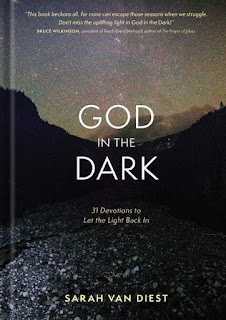Circles
I am in a constant need of saving. There is often a longing in me to step outside of the “things I know,” as in the way the Bible explains God and man, etc., and look at the plainer truth of what I see. When I study cultures, religions, and the histories of man I see many stories being told, often similar to our own. I very much want the God of the Bible to cover my questions, doubts, and skepticism with himself; answering them all with his person. And he does, when I allow him to do so.
It is that small action of my own acquiescence that bothers my soul. Not that I do it, nor that I want to do it, but that it makes the difference. Why does it have to be that in order for me to experience the awe of an awesome God that I must submit to it? And why do I wish instead that it would overwhelm me? That his greatness would knock me off my proverbial feet and lay me flat on the ground in profound humility? Why must it be a choice?
If it is defiance in me that causes me to struggle, then I am ashamed. If it is pride, also ashamed. If it is a lack of gratitude or self-righteousness, ashamed again. But must it be my own fears, my own eyes which blind me from seeing his greatness, if it is indeed so great?
When I step into the circle of our familiar Christian stories and the music of scripture plays in my mind, repeating the truths I love, then I see once again. The God of the universe sits majestically on his throne and all that exists does so in such a way, in such harmony, that it can only be God who orchestrates it all. But one step outside the circle, one moment in my “other mind,” and that holy image disappears, blending in with all the other stories mankind has created throughout time.
As man worked to understand life and death, creation, and relationships, he made for himself stories to soothe his mind. Standing in his circle of stories he sees how they all come together and form an explanation for how we came to be and what will become of us. He has faith in his stories and he finds great comfort there. But what happens if he steps out of his circle, and looks at it from a distant vantage point? He may see it for the created structure it is. He may see other circles created by other minds, cultures, and religions and begin to wonder what stories he has not heard. He may wonder if his are not as true as he thought they were. His wondering, his questioning, could be endless and anxiety may rule his mind if he does not choose a circle to live in.
But perhaps if he climbs a very high mountain and looks down at all the circles below, he may once again find a thought that soothes his mind. Perhaps on the peak, he will begin to see something new. The circles look so much alike from so high a vantage point, each with its stories and structures, each with its explanations to bring calm to anxious minds. And there are so many circles, stretching out as far as he can see. Could it be that their consistency is the evidence he hopes for? Could the circles, in their similarity and volume, be evidence of pervasive truth? Could their cohesiveness be an indication of a greater structure-maker?
Could it be this: “For since the creation of the world God’s invisible qualities—his eternal power and divine nature—have been clearly seen, being understood from what has been made, so that people are without excuse” (Rom. 1:20)?
Reality remains what it is regardless of man’s explanation of it. It is merely his experience which is altered by his chosen explanation. The story of Yahweh may be the one reality, the one story, the one great circle. The Father, Jesus, the Holy Spirit may be the great Structure-Maker. I hope he is. My heart longs for what I believe to be true. But I cannot know. Faith is the confidence of things hoped for, but it is not the thing itself. When I stand in praise of the Father of life, I stand in faith and in hope, and nothing more. The love I have for God is based on my desire that he really is who he claims to be and truly does love each one of us. I hope for his love and seem to experience it when I accept it. What more could I ask?
Does choosing faith make it less valuable? Is there somehow inherently greater worth in the verifiable? How vacant that sounds! How sorrowful that feels! If only that which we can prove has worth, then we are all bankrupt. We are left only with the perishable and the temporal to comfort our minds. The irony sits heavily on my chest. The concrete aspects of this world are hevel, vapor, doomed to dissolve and dissipate, while the ethereal remain untouched and unaltered, solid. If choosing faith means finding God, then I choose faith. I do not wish to walk this world alone.



Comments
Post a Comment